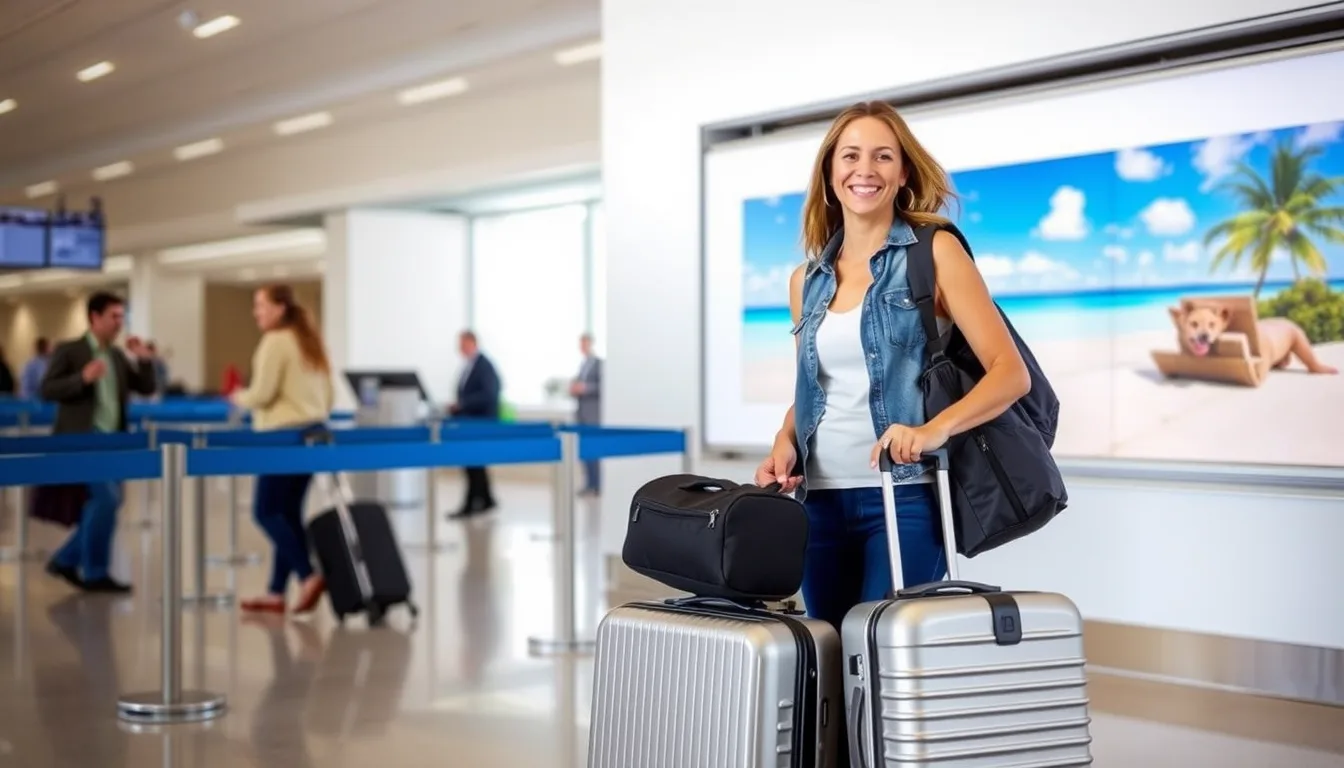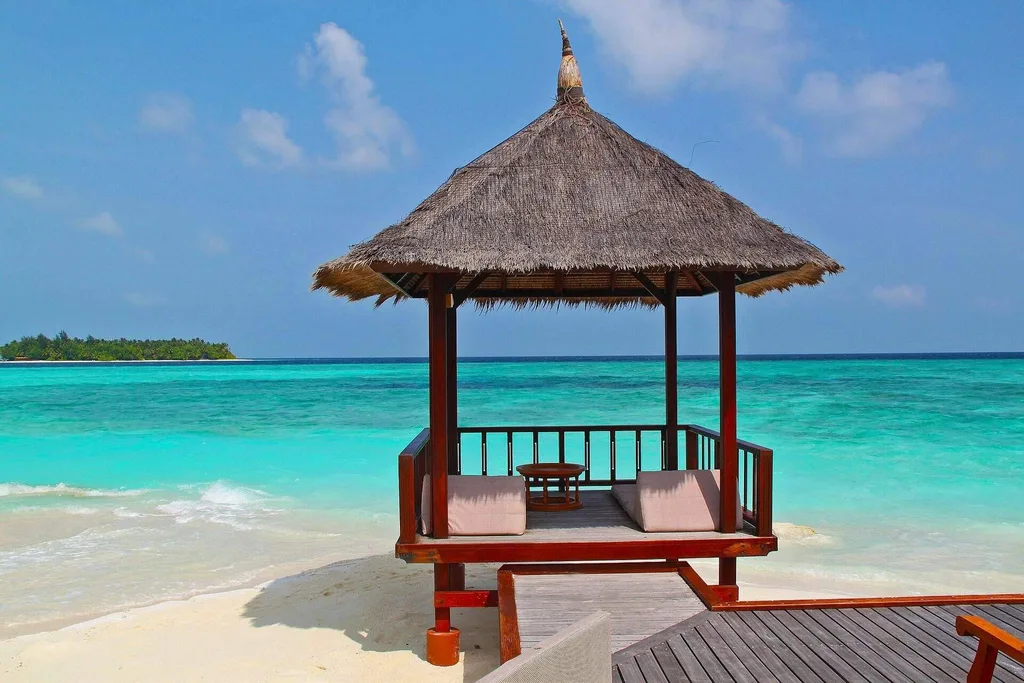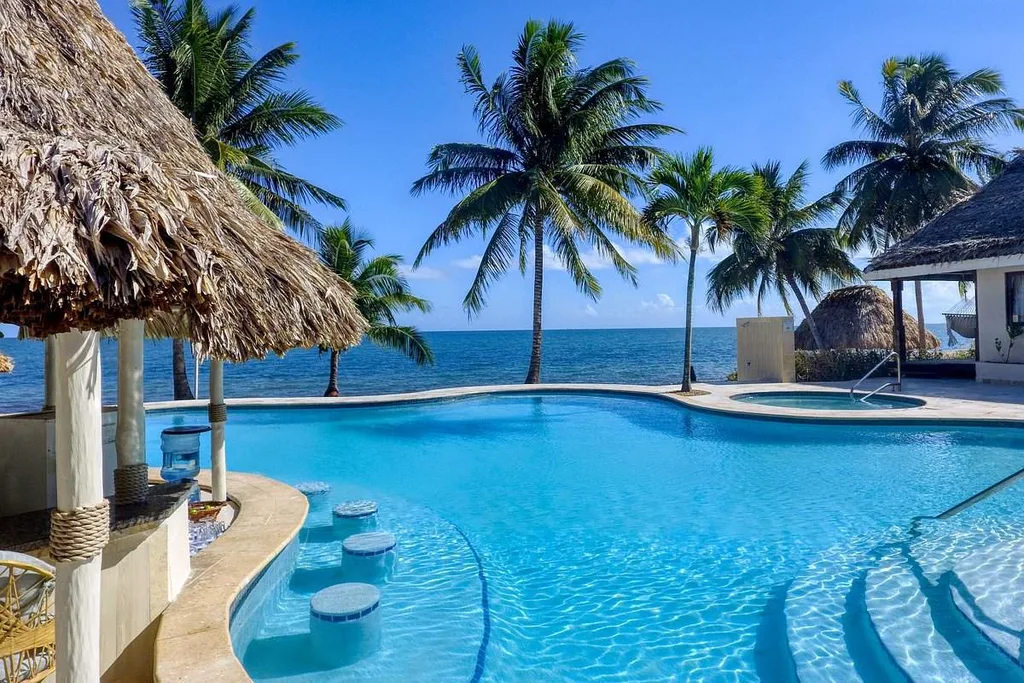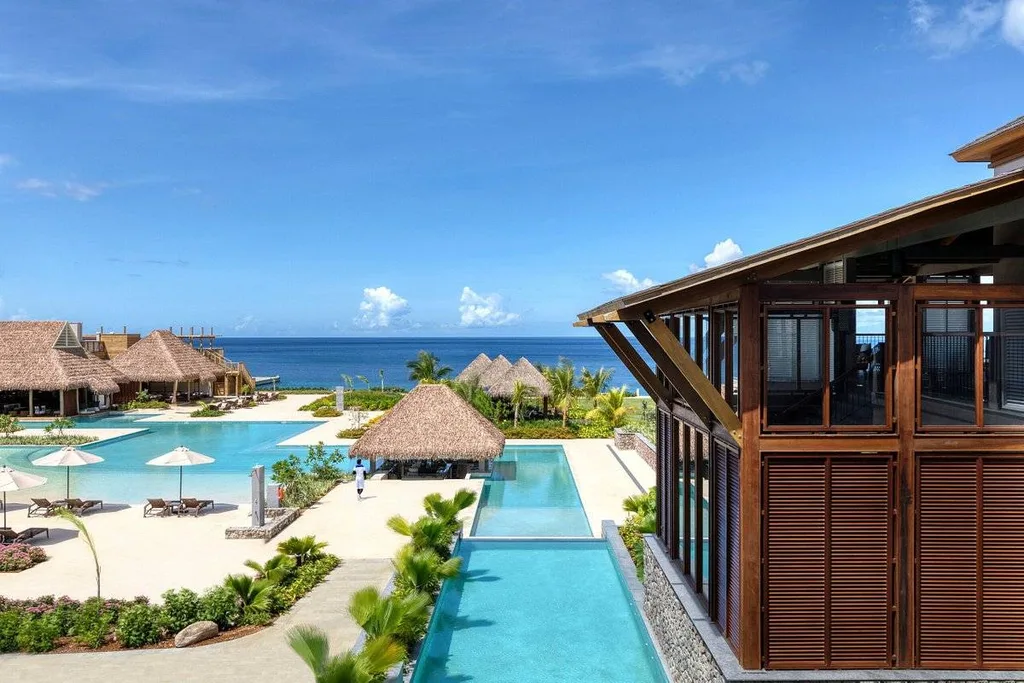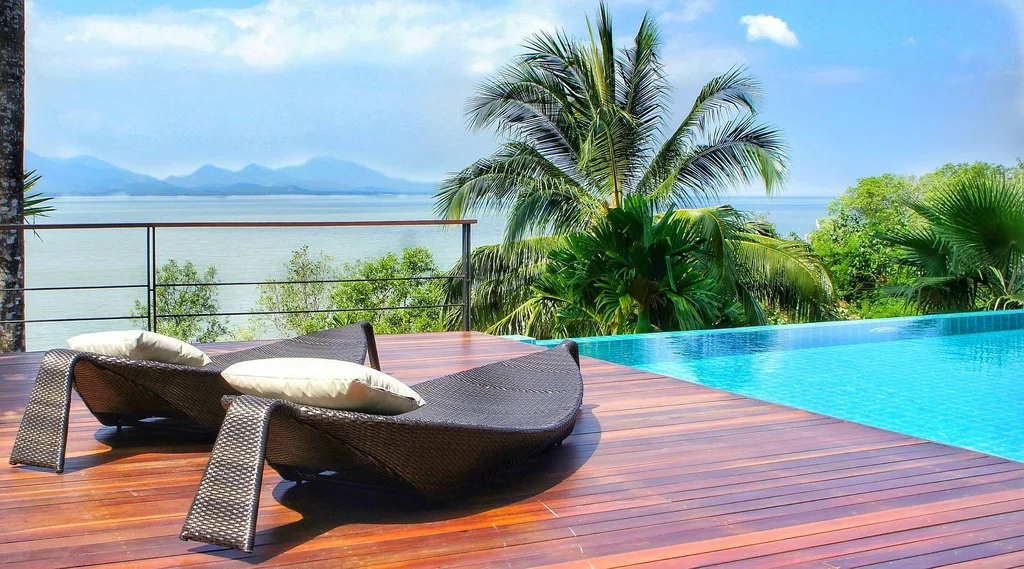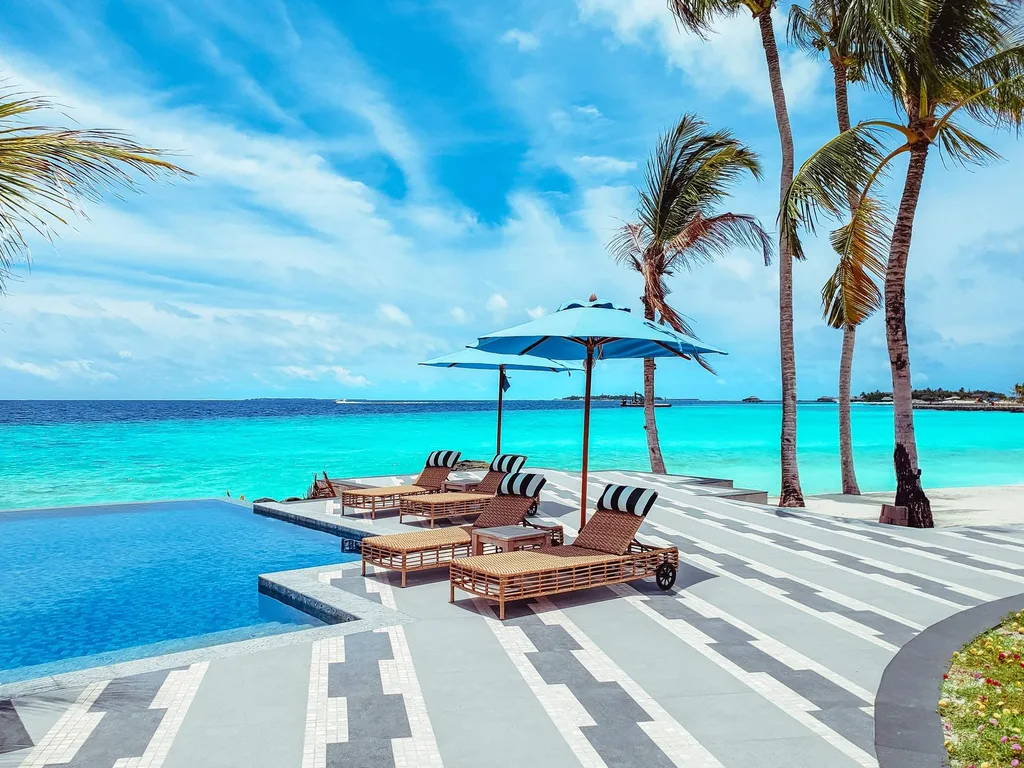Airport baggage fees can turn your dream resort vacation into a costly hassle.
With smart packing strategies and the right luggage, you can breeze through check‑in without stress.
This guide reveals proven tips to minimize baggage costs, avoid overweight charges, and keep your travel budget intact.
From packing cubes to resort‑friendly outfits, every strategy helps you save money and enjoy your getaway.
Let your getaway be defined by joy—not by extra charges.
Understand Why Airlines Charge Baggage Fees
Before diving into the strategies to avoid these fees, it’s helpful to understand why they exist.
Airlines began charging baggage fees as a way to offset the rising costs of air travel.
The cost of fuel, aircraft maintenance, and airport fees have all increased over the years, prompting airlines to charge for checked luggage.
- Revenue Generation: Baggage fees represent a major source of revenue for airlines.
As ticket prices are often heavily discounted, airlines rely on these fees to maintain profitability.
Many low-cost airlines, in particular, have built their business model around charging for services that were previously included in the ticket price, like checked baggage.
- Encouraging Carry-On Luggage: Airlines encourage travelers to carry their luggage onto the plane to reduce the weight and size of the aircraft, which lowers fuel consumption and overall costs.
When passengers check in additional bags, airlines need to pay for the extra handling, which is why they pass these costs onto the traveler.
While these fees are unavoidable on some airlines, there are ways to minimize or avoid them altogether.
By understanding the different baggage policies and packing smart, you can avoid these charges and keep your vacation budget intact.
1. Know Airline Policies to Avoid Extra Fees
Every airline has different policies when it comes to baggage, so it’s crucial to understand the specifics before you even begin packing.
Resort travelers, especially those heading to tropical destinations or all-inclusive resorts, often face the challenge of packing for various activities while avoiding hefty baggage charges.
1.1 Check Your Airline’s Baggage Allowance Before Booking
Each airline has its own baggage rules and weight limits, so always check the airline’s baggage policies when booking your flight.
Many airlines offer free checked baggage for specific ticket classes or loyalty program members, while others charge for any checked luggage.
- Free Allowance vs. Fees: Some airlines, such as American Airlines, Delta, and United, offer one or two free checked bags for premium cabin tickets (business or first class), frequent flyer status, or international flights.
Make sure you’re aware of your baggage allowance before booking to avoid paying extra fees at the counter.
- Basic Economy vs. Standard Economy: Budget airlines, such as Spirit, Ryanair, and Frontier, typically charge for everything, including carry-on bags and checked luggage.
Other airlines, including major carriers like Delta, American, and Southwest, may allow one free checked bag with a standard economy ticket, but they charge for additional bags.
1.2 Measure Carry-On Size to Dodge Fees
When flying to resorts, especially those with beaches or relaxed atmospheres, packing light is essential.
If your carry-on bag is within the airline’s size limits, you can avoid checked baggage fees altogether.
This strategy works best for shorter resort stays, such as long weekends or quick getaways.
- Carry-On Size Limits: Be aware of your airline’s carry-on size limits.
Many airlines have stricter regulations for carry-on bags than checked luggage, often limiting them to 22 x 14 x 9 inches (56 x 36 x 23 cm).
Invest in a durable, well-sized carry-on bag to maximize your allowance and avoid surprises at the gate.
- Travelpro’s Expandable Spinner: If you’re flying to a resort and want to keep your luggage to a minimum, Travelpro’s Platinum Elite Expandable Spinner is the perfect solution.
Its compact design allows you to pack efficiently, while its expandable feature lets you increase capacity if needed.
The spinner wheels make it easy to navigate through the airport, and the durable exterior ensures your bag withstands the rigors of travel.
1.3 Check Bag Weight Limits to Save Money
Even if your bag meets the size requirements, airlines often impose strict weight limits.
Overweight bags can result in costly fees. Check your airline’s weight restrictions and weigh your luggage before heading to the airport.
- Standard Weight Limits: For checked bags, most airlines have a weight limit of 50 pounds (23 kg) for standard tickets.
If your bag exceeds this limit, expect to pay a significant overweight fee, which can range from $50 to $100 or more per bag.
- Lightweight Luggage: Invest in lightweight luggage like theTravelpro Crew Classiccarry-on, which is known for its durability and light weight.
When your luggage weighs less, you can pack more items without exceeding the weight limit.
This is a game-changer for avoiding extra baggage fees, especially for longer stays at resorts.
2. Pack Efficiently to Avoid Extra Charges
Packing efficiently is one of the best ways to avoid baggage fees.
When traveling to resorts, the key is to bring only what you need while ensuring you’re prepared for resort activities like beach days, dinners, excursions, or spa treatments.
2.1 Use Packing Cubes to Maximize Space
Packing cubes are a game-changer when it comes to organizing your suitcase and maximizing space.
They allow you to pack your clothing tightly, preventing the need for additional bags or checked luggage.
- Travelpro’s Packing Cubes: Travelpro’s Packing Cubes help you organize your clothes, reducing wrinkles and optimizing luggage space.
You can organize by outfits, types of clothing (e.g., swimwear, casual wear), or packing categories, which helps minimize the need for extra bags.
- Compression Cubes: For bulkier items like jackets or towels, consider using compression packing cubes.
These cubes can compress your clothing to save even more space, allowing you to fit more in your carry-on or checked bag without incurring extra baggage fees.
2.2 Minimize Clothing and Maximize Versatility
Resort travel is the perfect time to minimize your wardrobe and focus on versatile items that can be worn in different ways.
- Resort-Friendly Outfits: Stick to neutral colors that can easily be mixed and matched.
You can pack fewer pieces of clothing by choosing items that are adaptable to different occasions.
For example, a beach cover-up can double as a casual dress for dinner, and sandals can work for both poolside relaxation and walking around the resort.
- Essential Resort Packing: Limit yourself to essential items like swimwear, lightweight clothes, one dressier outfit for formal resort dinners, a pair of versatile shoes, and comfortable resort attire.
Remember that most resorts provide towels, toiletries, and other amenities, so there’s no need to overpack these items.
2.3 Leverage Resort Amenities to Pack Less
Many resorts offer amenities such as toiletries, towels, and even basic first aid kits.
Rather than packing these items, check with your resort ahead of time to see what is provided.
- Travelpro’s Platinum Elite Garment Bag: If you’re traveling for a longer resort stay and need to pack clothing for different types of occasions, Travelpro’s Platinum Elite Rolling Garment Bag can help keep your clothes organized and wrinkle-free.
This bag is designed for business or leisure trips and has dedicated spaces for clothing, toiletries, and accessories, so you can fit everything neatly and avoid extra bags.
2.4 Use Tech Tools to Travel Lighter
Resort activities may require specific gear, such as snorkeling equipment or hiking boots.
Check if the resort provides equipment rentals or if there’s a local shop nearby to buy essentials.
- Travel Light: If the resort offers activity rentals, such as snorkeling gear or beach chairs, you can avoid packing these bulky items yourself.
Rent them once you arrive, and use your luggage space for essentials like clothing and toiletries instead.
This saves both money and space while eliminating the need for additional bags.
3. Choose Smarter Luggage to Avoid Fees
Sometimes, the key to avoiding baggage fees is choosing the right luggage that fits your needs and airline restrictions.
Here’s how you can maximize your luggage options.
3.1 Pick Luggage That Fits Airline Rules
Not all bags are created equal, and choosing the right luggage can help you avoid excess baggage fees.
- Travelpro’s Platinum Elite Expandable Spinner: This carry-on luggage provides ample space while keeping the bag within size limits.
It also has an expandable feature that lets you increase capacity if needed, making it a great option for trips where you might bring back souvenirs from the resort.
- Invest in a Personal Item Bag: Most airlines allow a personal item, such as a backpack or tote, in addition to a carry-on.
This could be a great option for carrying smaller items like a camera, book, or beach accessories.
Look for bags that are designed to maximize space and fit under the seat in front of you.
3.2 Check Personal Item Rules to Save Money
Many travelers overlook the personal item allowance, but it’s a great way to avoid baggage fees.
Be sure to check your airline’s personal item policy and use the maximum allowable size for this bag.
- Pack Smart with a Backpack: Travel backpacks, like those from Travelpro’s Business Collection, are designed to maximize space and organization.
These bags fit the personal item size restrictions while offering compartments for your tech, toiletries, and personal items, allowing you to carry additional items without paying extra fees.
3.3 Consolidate Luggage to Cut Group Costs
If you’re traveling with a family or group to a resort, it can sometimes be cheaper to pack everything into one large checked bag and pay for one extra bag instead of multiple individual bags.
- Group Travel Strategy: Consider consolidating your luggage into a single checked bag to save money on fees.
Many resorts offer family or group packages that include luggage allowances, and consolidating bags into one can help avoid paying for multiple checked bags.
4. Avoid Overweight Bags to Prevent Fees
Even if you’re within your bag’s size limits, exceeding the weight limit can result in extra fees.
Here are some tips to avoid this common pitfall:
4.1 Weigh Bags Before Travel to Dodge Fees
Packing light is essential, but it’s just as important to make sure your bag is within the weight limits.
Most airlines allow a checked bag weight limit of 50 pounds (23 kg). If your luggage exceeds this weight, you may have to pay an additional fee.
- Weigh Before You Go: Use a portable luggage scale to weigh your bag before heading to the airport.
This will give you an accurate idea of whether you need to make adjustments before arriving at the counter.
4.2 Use Lightweight Luggage to Pack More
The lighter your luggage, the more room you have for packing essentials.
Opt for durable, lightweight luggage that helps you keep your total bag weight low.
- Travelpro’s Crew Elite Expandable Spinner: The Travelpro Elite Expandable Spinner carry-on luggage is known for its lightweight yet durable construction.
This ensures you can pack more items without exceeding the weight limit, making it perfect for travelers heading to resorts who need to maximize their luggage space.
Pack Smart, Travel Light, and Enjoy Your Resort Getaway
Avoiding baggage fees doesn’t require complex strategies or cutting down your vacation experience.
By understanding airline policies, packing efficiently, and choosing the right luggage, you can travel to your resort destination without worrying about unexpected charges.
With the right preparation and smart choices—such as using Travelpro luggage and following the travel tips above—you can minimize your baggage expenses and focus on the fun and relaxation awaiting you at your resort.
Whether you’re lounging by the pool or exploring new destinations, the key to stress-free travel is a well-planned approach to luggage.
Let your resort getaway be filled with excitement, not extra baggage fees!
FAQ – Avoid Baggage Fees and Travel Smarter to Resorts
Why do airlines charge baggage fees?
Airlines use baggage fees to offset rising operational costs like fuel and maintenance.
These fees also encourage travelers to use carry-ons, which reduce aircraft weight and handling expenses.
Understanding this helps you plan smarter and avoid unnecessary charges.How can I avoid baggage fees when flying to a resort?
Use a carry-on that meets airline size limits.
Pack efficiently with compression cubes and resort-friendly outfits.
Check your airline’s baggage policy before booking, and explore loyalty programs that offer free checked bags.What’s the best luggage for avoiding baggage fees?
Choose compact, lightweight luggage like Travelpro’s Platinum Elite Expandable Spinner.
It helps you stay within size and weight limits while maximizing packing space.
This unlocks stress-free travel and reduces the risk of extra charges.Do all airlines charge for checked bags?
No.
Some airlines offer free checked bags for premium tickets or frequent flyer status.
Budget carriers often charge for both carry-ons and checked luggage, so review policies before booking.How do packing cubes help reduce baggage fees?
Packing cubes compress and organize your clothing.
They allow you to fit more into fewer bags, often eliminating the need for checked luggage.
This streamlines your packing and supports cost-saving travel.What’s the weight limit for checked bags on most airlines?
Most airlines set a checked bag weight limit of 50 pounds (23 kg).
Exceeding this can result in overweight fees ranging from $50 to $100 or more per bag.
Weigh your luggage before departure to avoid surprises.Can I use a personal item to avoid extra fees?
Yes.
Most airlines allow a personal item like a backpack or tote in addition to a carry-on.
Use it strategically to carry essentials and reduce the need for additional bags.Should I pack gear like snorkels or hiking boots?
Only if the resort doesn’t offer rentals.
Packing bulky gear can trigger extra fees.
Check ahead and rent on-site when possible to save space and money.
